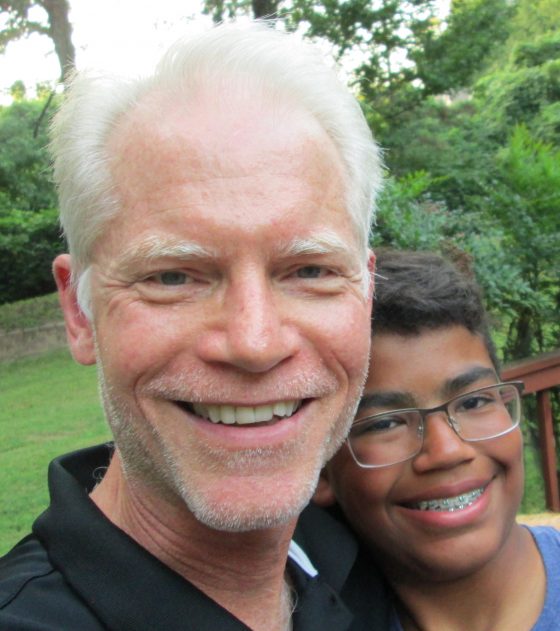Adam Gussow
Professor of English and Southern Studies

Adam Gussow has a joint appointment in English and Southern Studies. Recent themes in his seminars have included “Southern Musicians’ Autobiographies,” “Freedom Summer 1964: Mississippi’s Civil Rights Watershed,” and “Robert Johnson, the Devil’s Music, and the Blues.” His research and teaching interests include blues music, literature, culture, and tourism; southern music (especially country, bluegrass, and jazz); African American literature and cultural politics; the persistence of the pastoral South idea and other southern mythologies; and the long arc from slavery and segregation through the Civil Rights movement and contemporary struggles for racial justice.
Adam has a Ph.D. and B.A in English from Princeton University and an M.A. in English and Comparative Literature from Columbia University. Between graduate degrees, Gussow spent a decade as a blues harmonica instructor and performer, part of a Harlem-based duo that was recently profiled in a Netflix documentary, “Satan & Adam,” and he continues to record albums and play gigs here in Oxford when time permits. His books include Mister Satan’s Apprentice: A Blues Memoir (1998), Seems Like Murder Here: Southern Violence and the Blues Tradition (2000), and Beyond the Crossroads: The Devil and the Blues Tradition (2017), which won a Living Blues Award as “Best Blues Book of 2017.” His newest book, Whose Blues? Facing Up to Race and the Future of the Music (2020), was recently published by UNC Press.
Selected Publications
“Biel al Sur: Notes Towards a Genealogy of Blues Music’s Global Spread.” The Global South 14.1 (Winter 2020): 1-22.
“Out There in That Sun: Cotton Sharecropping, Self-Making, and Mississippi Blues.” Valley Voices: A Literary Journal20.2 (Fall 2020): 89-107.
“W. C. Handy and the ‘Birth’ of the Blues.” Southern Cultures 24.4 (Winter 2018): 42-68.
“The Straw That Broke: Michael Brown, Darren Wilson, and Two True Tales Told by Obama’s DOJ.” Medium.com. 18 September 2020.
Review of Worship Across the Racial Divide: Religious Music and the Multiracial Congregation, by Gerardo Marti, Reading Religion (26 June 2018, web).
“Blues Expressiveness and the Blues Ethos.” Study the South (January 2018).
“I Will be Free, I Will be Me: Rethinking Blues Origins, ‘Bluesmen,’ and Blues Feelings in the Age of #blacklivesmatter.” Arkansas Review 48.2 (Summer/August 2017): 83-98.
“Giving It All Away: Race, Locale, and the Transformation of Blues Harmonica Education in the Digital Age,” Journal of Popular Music Education 1.2 (July 2017): 215-232.
Review of Creating Jazz Counterpoint: New Orleans, Barbershop Harmony, and the Blues, by Vic Hobson, Louisiana History 57.2 (Spring 2016): 234-236.
“’I Got a Big White Fella From Memphis Made a Deal With Me’: Black Men, White Boys, and the Anxieties of Blues Postmodernity in Walter Hill’s Crossroads,” Arkansas Review 46.2 (Summer/August 2015): 85-104.
“Creating and Consuming ‘Hill Country Harmonica’: Promoting the Blues and Forging Beloved Community in the Contemporary South,” Creating and Consuming the American South, ed. Martyn Bone, Brian Ward, and William Link (Gainesville: University Press of Florida, 2015), 139-157.
“Playing Chicken With the Train: Cowboy Troy’s Hick-Hop and the Transracial Country West,” Southern Cultures 16.4 (Winter 2010): 41-70. A longer version of the essay was published in a volume entitled Hidden In the Mix: African American Country Music Traditions, ed. Diane Pecknold (Durham: Duke University Press, 2013), 234-262.
